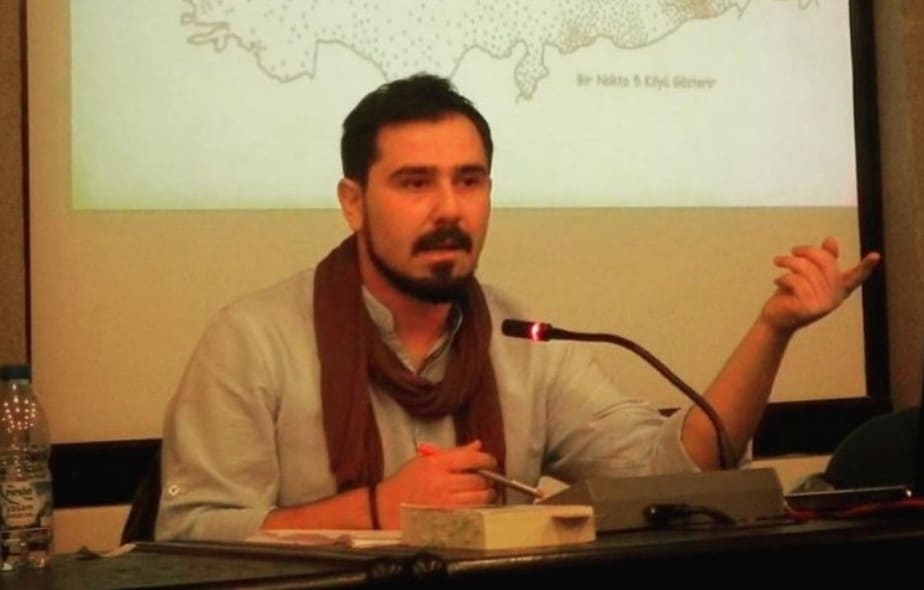The young Turkey born researcher Mert Kaya searched for his roots and discovered that he is the great-grandson of a Pontian Greek who was left behind in the population exchange in 1923-24 and was Islamised.
His intensive study has just been published in Greek and he states that "Memory is a place for battles".
Kaya was born and raised in Smyrna (Σμύρνα, Turkish: İzmir).
He studied Sociology at the Middle East University of Technology with a postgraduate degree in Cultural Studies and Media from Hacettepe University. His dissertation was a memorial research on the Islamisation of the Greeks of the East in 1919-1925.
The interest did not arise by chance; one day, when he was 10 years old, one of his aunts had returned from her first trip abroad, to Greece, and she was telling her brothers about her experience. When the conversation got "heavy," the adults took the children out of the room and watched a video showing an elderly man greeting them, saying "I miss you so much."
Over the years, and by persistently asking, Mert learned a different truth about the origins of his mother's family: their roots were not in the Bitlis, a city in eastern Turkey inhabited mainly by Kurds, but rather from in Amasya (Ἀμάσεια) in Pontus, today's Turkey's southeastern Black Sea coast. They were Pontian Greeks, most of whom escaped to Greece, except for Mert Kaya's great-grandfather Ishak, who was left behind, adopted by a Kurdish family and gradually converted to Islam and moved with them to Bitlis.
Looking for the traces of his ancestors in Greece and Turkey, Mert Kaya unraveled the thread of people who stayed behind and embraced Islam to survive. The children and grandchildren of those who experienced its events narrated the experiences of migration, residence, Islamisation, assimilation and cultural integration as they experienced them before, during and after the "population exchange".
The oral stories that he collected became his dissertation that was published in 2019 and a few days ago was published in Greek with the title "The Islamization of the Greeks of Asia Minor in the period 1919-1925. A study of memory" by Kyriakidis publications.
He is currently a PhD candidate in the Department of Communication Sciences at Hacettepe University and works as a sociologist at the UNESCO branch in Smyrna. This is his story.
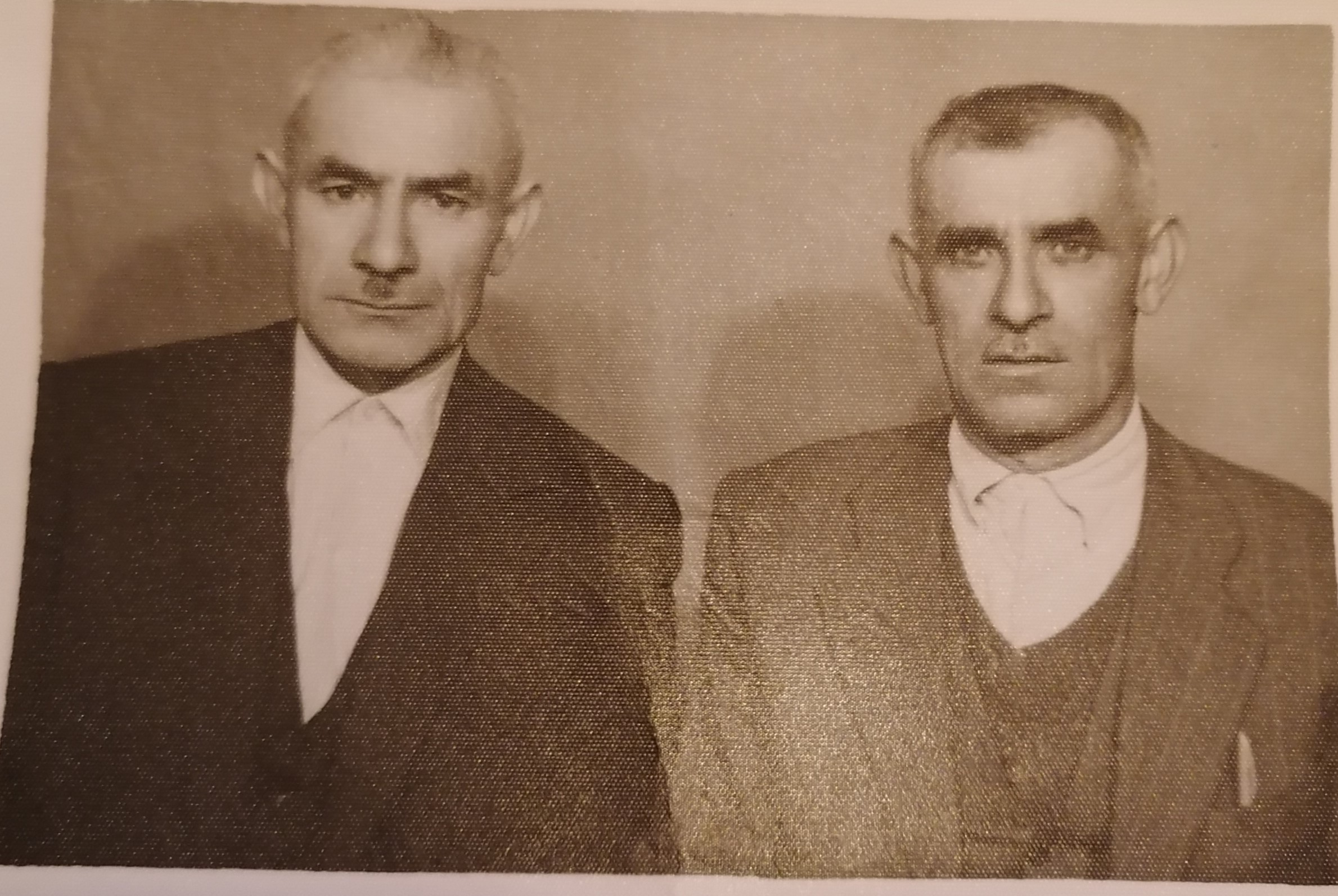
What is your family history? What did you know about it until you did your research?
My parents were born in Bitlis, a city in eastern Turkey, and moved to Smyrna in the late 1970s. I grew up with Turkish and Kurdish culture. I had no idea about my Greek origin. I was educated in classical Turkish history and under pressure of ethnocentric ideology.
If you live and grow up in Smyrna, your enemy is the Greeks. They taught us that the Greeks invaded our lands and we had a war with them.
There was basically no family history. No one mentioned the past - only some happy stories from childhood and difficult living conditions, especially during winters. When I compared my mother and father's families, I found my father more conservative. On my mother's side, they are more open-minded and not conservative. I always feel more intimate with my mother's side; I share and communicate more with them. Although I knew nothing about family history, I already felt closer to my mother because of their views.
How and why did you start looking for your roots in Pontus?
When I was 10 years old, one of my aunts on my mother's side went to Greece. We were told it was a tourist trip. It was the first time she visited a foreign country. It was interesting to me. When they returned, they called us. They were talking about something, but I could not understand. Then the children went out of the room and the adults started watching a video. I heard mourning and went back to the room and saw an old man on TV, greeting and saying something in Turkish like "I miss you so much". I asked them about this guy, but no one answered. They just said that this man was our uncle.
"Uncle; Why in Greece? Why does he live there?" I began to ask, but they did not answer.
"He managed to get there," they said.
I was a child, but I felt it was something else. In high school, my interest in history grew. I read a lot. I always asked about our uncle in Greece. I was once told that a Greek soldier had taken him prisoner and made him a Christian. It may have been believable, but they lived in Bitlis; Greece had nothing to do with the Bitlis.
At University, I started working in student groups and minority rights programs in Turkey. I read a lot. There were some gaps in our history. I searched more, but they did not say anything and they repeated the same ethnocentric stories. They did not talk about Pontus, the Greeks, the Exchange, etc. One day, an aunt of mine sent me a message that she needed help. She said that she already had some contacts with our relatives in Greece. However, due to the Athens Olympic Games, she lost contact because the phone numbers had changed. She told me the story as she knew it - her father was not from Bitlis, but from Amasya. Her father did not mention his family and had forbidden these questions at home. She said "I know I have an uncle in Greece, but I do not know details."
Her uncle had come to Turkey twice to visit their father, once in Bitlis and once in Smyrna. Her father and uncle met and had contact. They sent letters to each other. He gave me the letters and the photos they had taken together. The letters were in Turkish, but had postal addresses on them. I had already learned the Greek alphabet to read and speak basic Greek. I started searching on the internet and especially on social media.
My aunt told me that my uncle was called Ioannis and that there are others, but I do not know what our relationship is. They are called Sofia, Cassia, Filippos and Tomi.
They were common names and it was difficult to identify them. I saw in the letter "Ioannis Anastasiadis".
At that time I had gone to Germany with the Erasmus program. I sent messages to the people who had tagged themselves in Livadochori, where the letters came from. A woman answered me saying "I do not know".
He referred me to someone who spoke Turkish and was one of our relatives. And that's how our story started.
I learned the details, how Turkish soldiers forced them to emigrate and be adopted by a Kurdish family and became a Muslim in 1924.
Thinking about how the brothers met after 40 years in the Bitlis and why Grandpa Ishak decided to move to Smyrna, etc, I began to wonder if Ishak's story was unique or not. I started looking for it historically and read a lot of documents.
At some conferences, I talked about the story of the two brothers and received messages from people telling me the story of their own family. The circle was growing. Many people wanted to tell me about their own Greek origin. I decided to collect them and write my dissertation on it.
The ideology of the nation-state hides some realities, but memory is something very powerful. The truth will be revealed. I started looking for it historically and read a lot of documents.
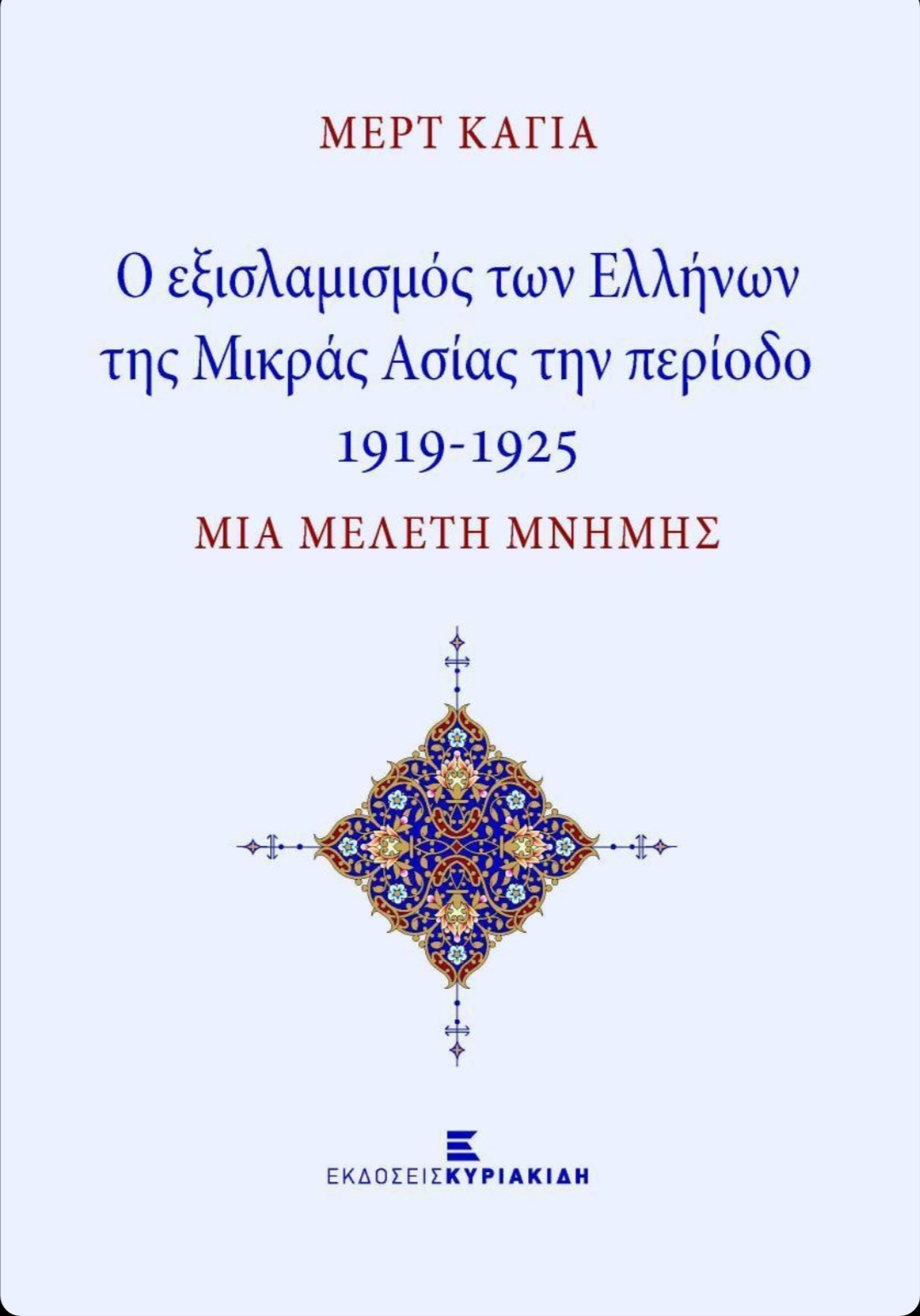
How and where did you do your research? Have you ever felt threatened because of this?
I first started listening to stories. My dissertation was an oral history study and the method I followed was in-depth interview.
I recorded voices from different cities, such as Sampsunta (Σαμψούντα, Turkish: Samsun), Trapezounta (Τραπεζούντα, Turkish: Trabzon), Smyrna, Caesarea (Καισάρεια, Turkish: Kayseri), Neapolis, Cappadocia, and converted them into text. It took me about a year.
I talked to eight people, but two of them eventually did not want their stories to be included in my dissertation. For moral reasons, I did not use their names.
There are six stories from Turkey, four from Greece, a total of ten and they were enough for me to do an ethnographic work.
I met with some scholars from Greece, I even visited them and used their sources. I completed the dissertation and it was approved in 2017. I did not feel much risk, although I received some vitriolic messages on social media.
My family and friends were worried about it, but I was calm and kept talking. Bitter stories are about families divorced due to forced migration. I focused on what happened to the children who stayed in Turkey. One of them was my great-grandfather, who grew up without his language, religion and family. No one could stop me from looking for it. My purpose was not to change anything, except ideas and historical narratives.
What have you discovered about your own roots and what about the history of the children who converted to Islam and the persecution of the Greeks of Pontus?
My great-grandfather Ishak and his family were Greek Pontians from Aydoğdu, a community in the Amasya region of Pontus. He stayed there with a Kurdish family because he was working to make money for the family and when the gendarmes came to pick him up with his mother, he got scared and escaped.
He started living with the Kurdish family and at some point became a Muslim. He had to be like all the other kids. Turkey was established in the ideology of the nation-state. They were neither Sunnis nor Turks. So he had to be like them.
It's a way of surviving.
Another way is to not talk about the past and force themselves to forget.
To this day, many people send me messages about their ancestors.
According to my research, there was no systematic Islamization of children in the period 1919-1924. It was inevitable to acclimatize and assimilate. The main problem is that we do not know the actual number of children.
How many children were left behind, how many survived and became Muslims?
Turkish villagers have described to me how Pontian Greeks had been burned in the caves by Topal Osman and his men. I did not read it from Greek sources, I learned it directly from Turkish villagers.
On the other hand, someone had told me that his great-grandfather was a Pontian and he was forced to leave.
He separated from his family and they gathered in a church, where some locals asked them to become Muslims.
His great-grandfather decided to become a Muslim because he was scared and started living with him, while his family was sent to Greece.
His great-grandfather always talked about his family and was sad until he died. There may not have been systematic Islamization by the government, but society knew how to Islamize people as early as 1915.
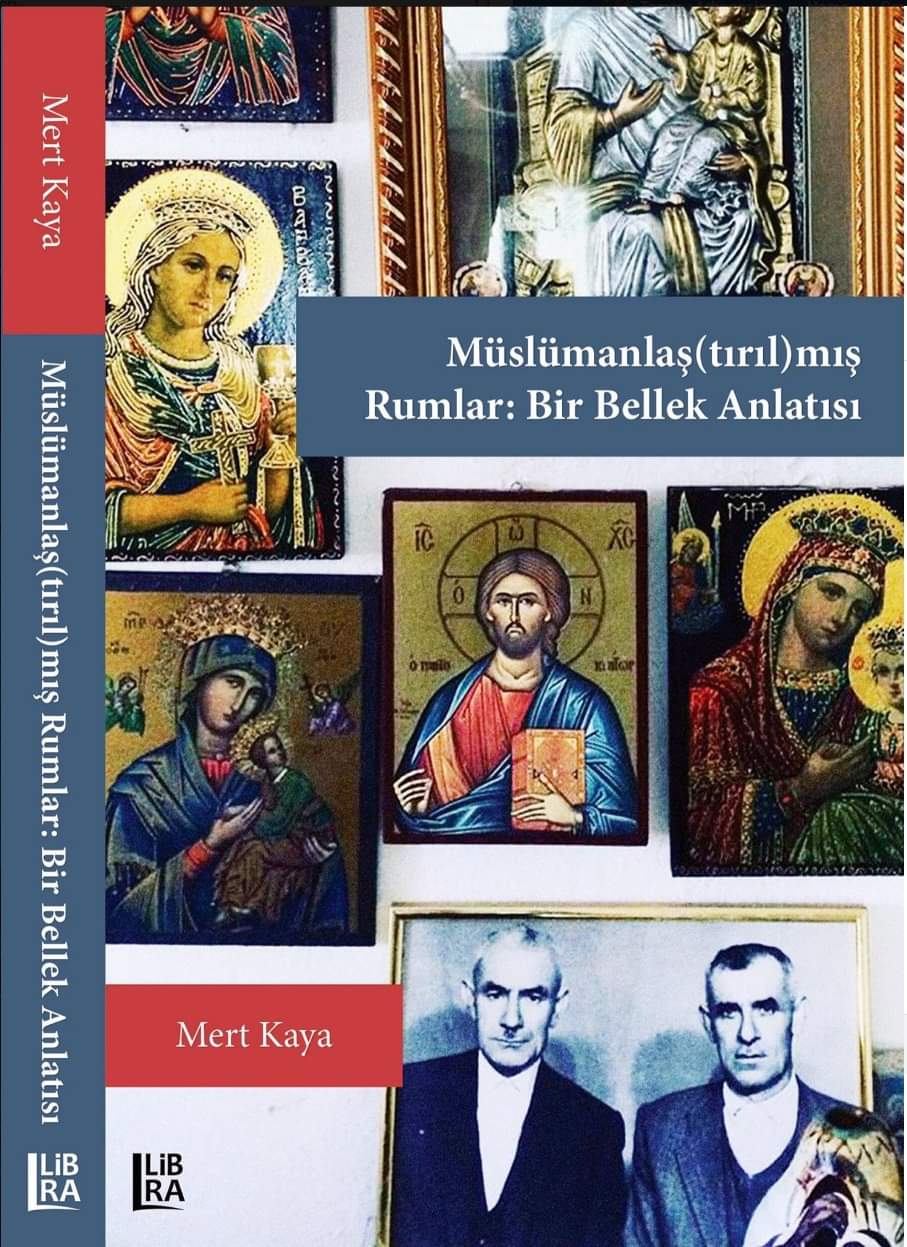
How did these people become Muslims?
Generally, those left behind were children working as house servants and girls who wanted to marry young Turks. In time, they became Muslims under the pressure of the families in which they lived as well as society. They were gradually assimilated and acclimatized. Becoming a Muslim was one way to survive.
You may not feel Muslim, but you can look Muslim; to go to the mosque, to fast during Ramadan or to dress like a Muslim. For example, my great-grandfather looked like a true conservative, wore a salwar kameez and went to the mosque, but he did not raise his children as conservative Muslims and send them to learn the Qur'an, which was very common in small towns.
Basically, being a Muslim is not important, pretending to be a Muslim is a way to hide.
They were all children and unfortunately we can not say that they really chose Islam as their true religion and destiny.
What do their descendants know today about the history of those ancestors?
People in Turkey pay attention to family stories even if there is a risk that they will be confronted with something they will not like. I have met many people looking for their ancestors, their roots and their family stories. People who contributed to my dissertation were looking for themselves and paying attention to their family history. People's ideology plays an important role in the search for stories. If they really want to get to the truth, no one can stop them, but some want to prove that they are genuine Turks and distort the stories. My interviewees knew their family history well, but some preferred to keep it a secret.
Are there still crypto-Christians in Pontus?
It is not easy to find today if there are still crypto-Christians in Pontus. I do not study Pontus specifically, although I could do so in the future. As far as I know, there are people who discovered their history and Christian origin and decided to be baptized, but they are not crypto-Christians. If something is hidden, it is hidden. It is not easy to see.
What did you know about the history of the Greeks of Pontus before doing this research?
Basically nothing. All I knew was that there were Greeks in Smyrna, my hometown, and that they went to Greece during the Exchange. Even my family did not know anything about the Greeks of Pontus.
In Turkey, especially in history lessons, the discussion revolves around the groups that benefited and those that were harmful. One of the groups reported as harmful was the Greek Pontians. Therefore, Pontus was a bad thing for us.
As a child, you do not wonder, you learn what they teach you. When I went to University and began to wonder more and read from different sources, I realized the ideology of the nation-state and its purpose.
How difficult was it for you to do this research, given the current political situation in Turkey?
It was not easy, but there are still some scholars who helped us do good research in Turkey. As I mentioned, my family and friends are very worried about this. I do not share my work on social media or in the conferences I attended. My interest is the memory and to ask questions to shed light on it.
Did all the Greeks leave for the Exchange?
If not, what happened to those left behind?
How do the Islamized Greeks remember?
Why do they start remembering?
Do they force themselves to forget their past?
When you look at the history of the Turkish Republic, you can see the chronology of the conflict with Greece: 1919, 1924, 1942, 1955, 1974 and even Greece is a kind of enemy for Turkey.
"Greek" ("Romios") as a term is an insult and in fact very common.
I try to explain the consequences of this hatred in the end.
How social pressure affects human lives. Not only in Pontus, but also elsewhere Greeks and other ethnic minorities in Turkey have had bad consequences from hate speech.
In addition, it continues politically. I do not have the power to change it, but academically I have an obligation to speak. My research is an ethnographic study that focuses on hidden stories of families of Greek descent, including my own, and many people became interested and wanted to tell and search for their own family stories.
Memory is a place for battles.
We must remember and we must respect each other's grief, but elsewhere Greeks and other ethnic minorities in Turkey have had bad consequences from hate speech.
In addition, it continues politically. I do not have the power to change it, but academically I have an obligation to speak.
Having discovered your family roots, do you feel you have a new identity?
First of all, I want to say that in my opinion all identities are artificial. We, our society, our culture etc create them. In addition, I am now a PhD candidate and I have a question to ask. How does memory affect our identity? How do these stories affect us? I feel multicultural and that makes me free. I do not hesitate to say "I am a Greek Pontian".
I live and grow up in Turkey with Turkish culture, but on the one hand my origin is Greek-Pontic. I try to learn Greek. I like to be multicultural and have many identities. It was not my grandfather's choice either.
How much has your experience changed? What does your family say about this discovery?
My perspective has changed after this experience. I now understand how mine and other families were in need and forced themselves to hide their stories. At first, my parents opposed me because they were afraid. When I found our relatives in Greece, I wrote our story and sent it to all the family members. They have the right to know the truth. They were all shocked and everyone was happy to find us. We made video calls and saw each other. In the end, I took my mother and my aunt and we went to Greece together. This reunion changed everything. Now, my mother calls her cousin in Greece whenever they want. They now have a connection. Now, our connection is secure because we do not want to hide it again. Of course, they do not put labels on each other and we feel happy and calm.
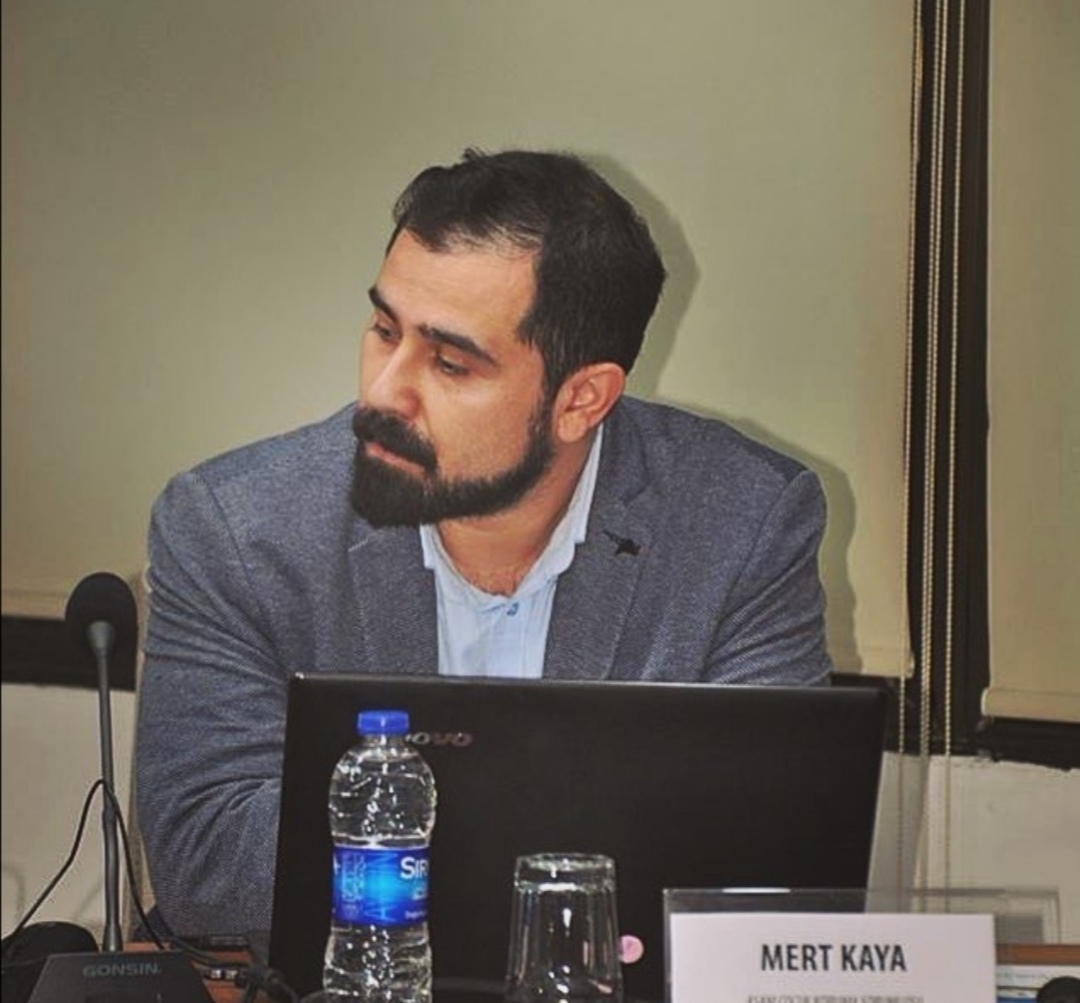
Was there a story that shocked you?
There were several. Many of them are in the book and all of them really shocked me. While doing my research, I went through difficult times, once I could not sleep because of these stories. There were stories of people who secretly went to church to baptize their children, stories of people who were discredited by their friends because their family is of Greek descent, many such stories.
A conversation made me cry at the time of the interview. When my interviewee was a child, his family sent him to the mosque to learn the Qur'an. Some children broke the windows and ran away. And then they all blamed my interviewee and said that his family is already Greek. As we did the interview, he said to me "I swear to God, I did not do it, I did not break the window".
Where does the surname Anastasiadis that you have in your profile come from?
My relatives in Greece have the surname "Anastasiadis". I symbolically added the surname Anastasiadis to my profile to become one of them. Also, Anastasia was my great-grandmother's mother - that's why they have her as a last name. I'm proud and happy to use it too.
What does your book deal with? What are your expectations from the Greek version that was released a few days ago?
I want Greeks to know that there is someone who works for the hidden and Islamized Greeks. We are still here. There are stories and people start remembering and talking loudly. I believe that this study is important because it is the first time that the Islamization of the Greeks is investigated during the period of the Population Exchange. There are sad stories from that period because many families left someone in Turkey. This book turns on the lights and the fire in the dark. It also shows the importance of memory and how it affects people.
We live in an age of great waves of migration. Do you see similarities between today and those people who left their homes in the early 20th century?
Of course there are similarities. All these migrations are mandatory. People go somewhere and they do not know and move with their wounds. In the 20th century, forced population movements occurred for nation-states. The people planned the Turks to stay in Turkey, the Greeks to go to Greece. Today the nation-states are losing their power. In the 21st century, immigration makes states multinational.
This article first appeared in Greek in Athens Voice.
READ MORE: The Pontic Greeks who fought hard and bravely against genocidal barbarity.

